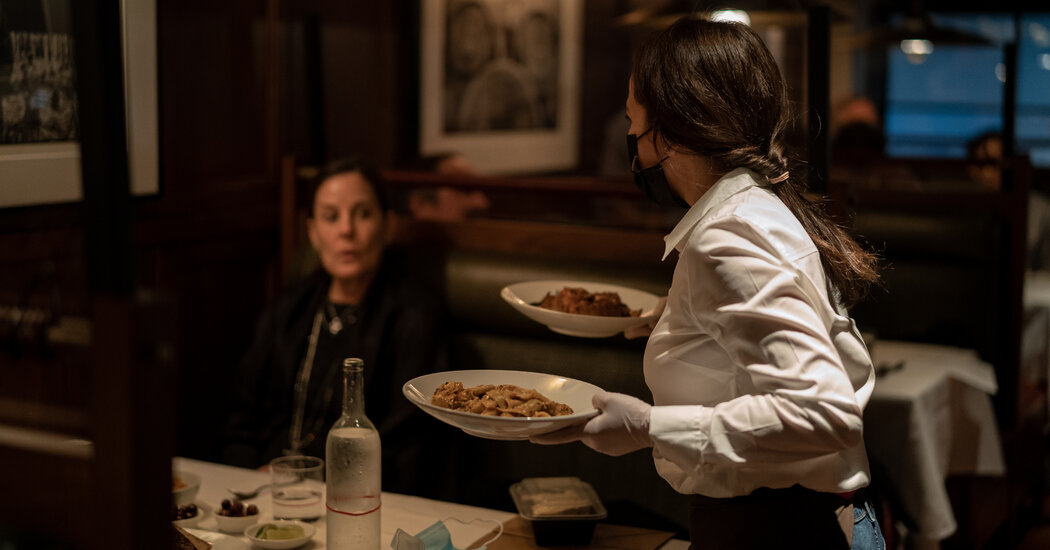
New York City’s recovery will depend in large part on the success of a restaurant industry now required to extend its definition of prosperity to include the ability of workers, both front and back of house, to live decently. In this case, the rhetoric of returning to normal is inapt, because “normal” was dysfunctional and bleak. Before the pandemic, as Mr. Parrott’s data indicates, 84 percent of restaurant workers in New York City made less than $40,000 a year, with roughly a quarter of them receiving food stamps.
So what is the equitable path forward? Part of it lies with legislative changes to the rules governing pooled tips. In New York State, only employees who interact with patrons are eligible to receive a share of tipping proceeds. This means that while bus boys and bartenders may get a cut of a waiter’s tips, kitchen staff cannot. The restaurateur Danny Meyer, who has been pushing for this change, points out that hourly wages for kitchen workers have remained essentially stagnant for decades while tipping rates have risen considerably.
There would also seem to be a moral imperative for affluent people, who have watched their portfolios soar as they largely worked from home during the pandemic, to bear the burden of paying more for the experience of going out. Last summer, when people began returning to restaurants again and eating outside, euphoria and savings from months spent in the house resulted in a newfound largess — often aided by alcohol. Tips were plentiful, in many instances exceeding 30 percent, but eventually the spell wore off.
Given the climate, there should be little issue with jacking up the price of a shellfish risotto. “Restaurant goers figured out years ago that it was worthwhile to pay more money for better ingredients,’’ Mr. Meyer said. “But we haven’t done a great job persuading them that what we really need to be paying for is people. When you see an heirloom tomato on a menu, you know that you are going to pay more for it. Restaurant workers have been subsidizing dining out, and it is going to take some education to change things.’’
One potential outcome of the pandemic may be that restaurant work becomes more professionalized and less transient, adhering more closely to the European model. “I try to think about what people want from the workplace,’’ the acclaimed chef Alex Raij told me. In a moment in which workers have more leverage by virtue of their scarcity, they are freer to ask for more opportunity. Ms. Raij has been exceeding the minimum wage in her restaurants for years. But because her operation is relatively small, there are not layers upon layers of management structure, so she has had to be creative in coming up with paths to advancement for people who are looking for more of a hand in terms of operation.



